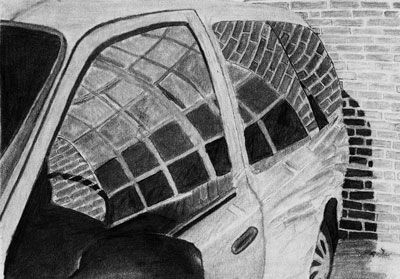All Nonfiction
- Bullying
- Books
- Academic
- Author Interviews
- Celebrity interviews
- College Articles
- College Essays
- Educator of the Year
- Heroes
- Interviews
- Memoir
- Personal Experience
- Sports
- Travel & Culture
All Opinions
- Bullying
- Current Events / Politics
- Discrimination
- Drugs / Alcohol / Smoking
- Entertainment / Celebrities
- Environment
- Love / Relationships
- Movies / Music / TV
- Pop Culture / Trends
- School / College
- Social Issues / Civics
- Spirituality / Religion
- Sports / Hobbies
All Hot Topics
- Bullying
- Community Service
- Environment
- Health
- Letters to the Editor
- Pride & Prejudice
- What Matters
- Back
Summer Guide
- Program Links
- Program Reviews
- Back
College Guide
- College Links
- College Reviews
- College Essays
- College Articles
- Back
Social Anxiety vs. Shyness
It’s normal to feel apprehensive before giving a speech in class, or waiting anxiously at the dentist, or even feeling nervous to go on a first date. Many people feel sheepish or insecure from time to time, shyness being the cause of their self-consciousness. However, if these feelings begin to effect routine, schedule, or one’s life in ways they avoid social interaction or situations, then it’s most likely social anxiety that is affecting the person. So whether its shyness or social anxiety, both have their differences in behavior.
Social anxiety, or social phobia, is an “anxiety disorder in which a person has an excessive and unreasonable fear of social situations (Goldberg)”. People who suffer from social anxiety usually tend to stray away from social situations for they are afraid of being humiliated or evaluated by others; they are afraid of being laughed at, looking insipid, or making mistakes in front of others. As a result, they deal social situations in “extreme distress” or they might “avoid them altogether”.
Social anxiety will “negatively interfere with the person’s normal daily routine, including school, work, social activities, and relationships”. However, people who suffer from this disorder may just be anxious of particular situations such as “eating or drinking in front of others, being the center of attention, writing or working in front of others, asking questions or giving reports in groups, interacting with people…” In addition, if they happen to come into terms with these situations, they will experience physical symptoms such as a “pounding heart, sweating, blushing, muscle tension, upset stomach, and diarrhea”
Causes of social anxiety are not known, but biological, psychological, and environmental factors contribute to social anxiety. For instance, biological is related to social anxiety because of “abnormal functioning of brain circuits that regulate emotion and the fight or flight response center in the brain.” Psychologically, social anxiety “may stem from embarrassing or humiliating social experiences in the past, such as being bullied or neglected by peers.” And an environmental factor is when “children who are sheltered or overprotected by their parents may not learn good social skills as part of their normal development.”
Unlike social anxiety disorder, shyness is considered a characteristic and part of someone’s personality. Its “a form of excessive self-focus: a preoccupation of [one’s] thoughts, feelings and physical reactions (Whitten).” Shyness kicks in when experiencing new changes, for example, moving to a new city, changing to a new office or getting a divorce. Another reason the shy are timid is the unfamiliarity of situations, places, and people; they tend to act awkward and tense when in unknown environments. Although the shy want to interact with others, they don’t because they can’t handle the anxiety.
Nowadays, technology is all around us and while that is a good thing the “affluence may increase the level of shyness in our culture, explained in terms of greater social isolation, less practice in face-to-face conversations, and avoidance of awkward, unfamiliar, and spontaneous interactions.” That being said, social interactions are not practiced as much as when we are online behind a computer screen.
For the most part, social anxiety disorder and shyness have their differences ranging from a mental illness to a personality trait, from a fear of being in a social situation to not being able to be in a social situation. All in all, social anxiety and shyness have their differences in behavior that make the two distinct.

Similar Articles
JOIN THE DISCUSSION
This article has 0 comments.
